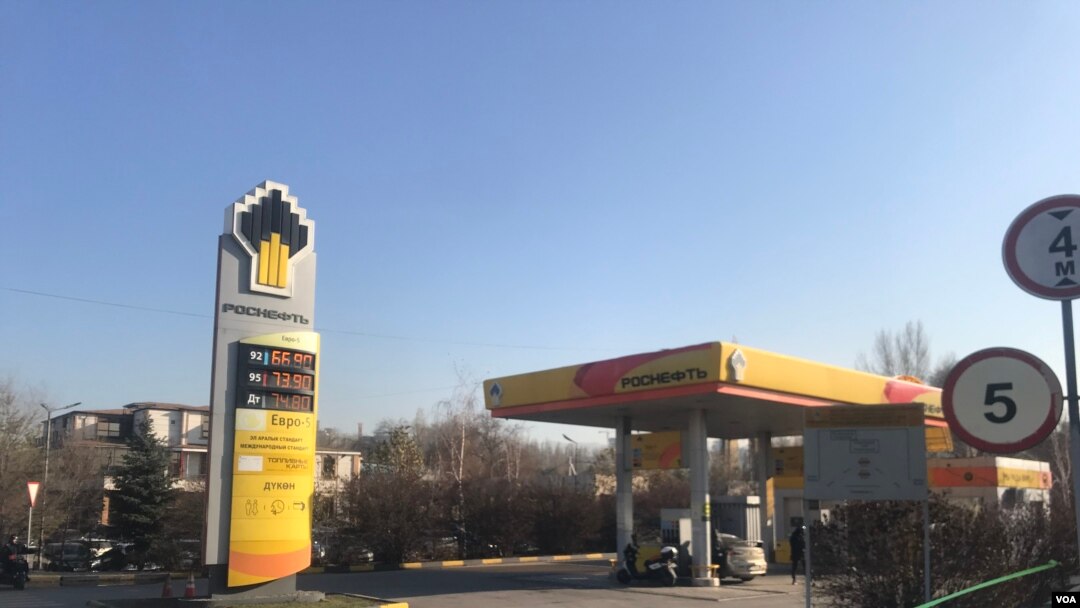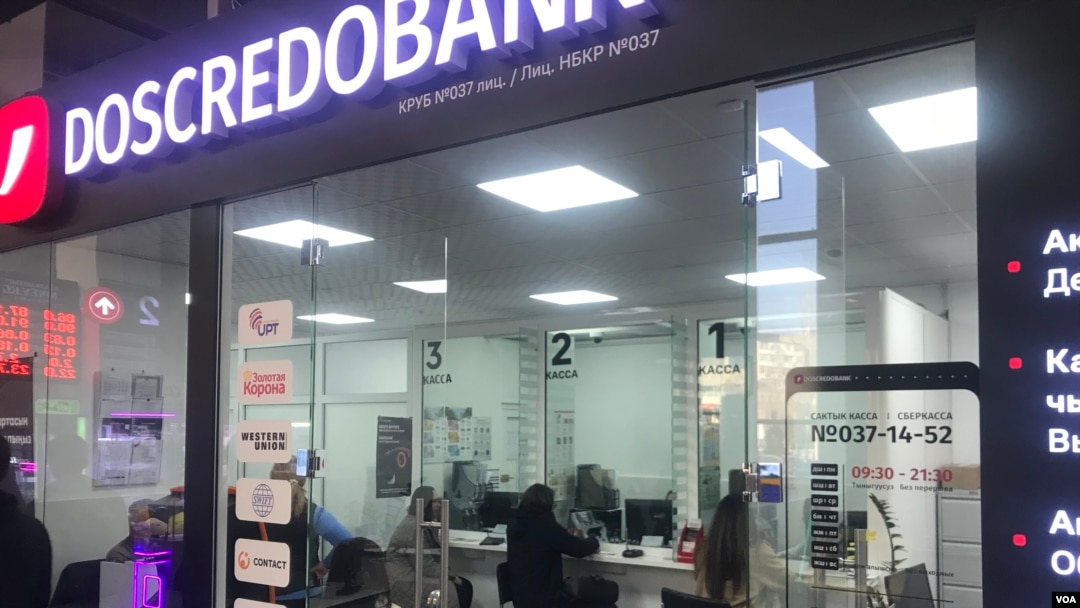Experts say Kyrgyzstan’s efforts to enforce Western sanctions against companies supplying dual-use goods and equipment to Russia are constrained by opposition from business, limited bureaucratic resources, and unwillingness to antagonize the Kremlin.
Since 2022, the U.S. and EU governments designated a dozen Kyrgyz companies as violators of international Russia sanctions. According to the U.S. Treasury Department website, "Entities based in the Kyrgyz Republic have been frequent exporters of controlled electronics components and other technology to Russia since Russia began its full-scale invasion of Ukraine. Some of these shipments have subsequently supplied sensitive dual-use goods to entities in Russia’s defense sector."
There has been a significant rise in trade between Kyrgyzstan and Russia since Moscow’s 2022 invasion of Ukraine, with this year’s Kyrgyz exports to Russia through November up 47% from the same period last year, according to the Kyrgyz State Statistical Committee.
Kyrgyzstan and Russia are both part of the Eurasian Economic Union, which also includes Armenia, Belarus and Kazakhstan. As some media reports have claimed, the Kremlin has relied on Kyrgyzstan’s membership in the bloc as a backdoor channel for sanctions evasion.
Western actions targeting Kyrgyz companies have irked Kyrgyz officials, but they have taken a series of measures to avoid more sanctions. In October 2022, Kyrgyz banks stopped processing transactions with Russian MIR cards, the go-to payment system for Russian citizens.
In August of this year, the Kyrgyz government set up a new government State Trading Company to engage in external trade and monitor private import and export transactions.
A month later, a government decree obliged Kyrgyz banks to suspend monetary transactions of all local and foreign companies involved in reexporting goods from China, South Korea and the EU through Kyrgyzstan to Russia. The State Trading Company has been exempted from this requirement.
Kyrgyz officials have portrayed the measures as effective, with Economy and Trade Minister Daniyar Amangeldiev saying in October, "We have obligations, and we are fulfilling them. Accordingly, such [sanctioned] goods never came to us, and they didn’t go through our territory."

FILE - A view of Russia-owned RosNeft gas station in the Kyrgyz capital Bishkek, Nov. 19, 2024.
However, regional experts paint a different picture.
Bishkek political analyst Emil Juraev told VOA by email that Kyrgyzstan has limited capacity to enforce Western sanctions.
"It is the purview of the [Kyrgyz] Customs Service, which must have full information about what kind of goods are being exported and imported. That way, it would be possible to see what is being shipped to Russia. But in our country, such [sanctioned] goods are brought through contraband [channels]," he said.
Meanwhile, the government action to control external trade through State Trade Company has caused consternation among Kyrgyz businesses. Askar Sydykov, head of the International Business Council, a Bishkek-based business association, told an Oct. 15 roundtable in Bishkek the number of commercial transactions can reach hundreds and thousands, which may be beyond the capacity of the government to deal with.
"Given that the company has been created only recently and it lacks experience in such transactions," he said, referring to the State Trading Company, "this can have significant [negative] implications on the country's interests and profitability of the banking sector and business community."
Sydykov also added that Kyrgyz entrepreneurs have vague ideas about what constitutes sanctioned "dual use goods," implying that Kyrgyz authorities need to do more to raise awareness of the issue among exporting businesses.
Kyrgyz authorities have also grappled with punishing companies involved in sanctions evasion. As of December, the Kyrgyz government only revoked registration of two Kyrgyz companies that were included on the U.S. sanctions list.
"Closing down a few companies will not make big difference," a Kyrgyzstani entrepreneur whose company imports goods from China told VOA, on condition that she be identified by only her first name, Nazira.
"Hundreds of [Kyrgyz] companies are involved in this business," she said, referring to sanctions evasion.
Fears of antagonizing Russia
At a Nov. 25 news conference, Russian Ambassador to Kyrgyzstan Sergei Vakunov took a jab at Western secondary sanctions against Kyrgyz companies, portraying them as "direct interference of foreign countries into affairs of a sovereign country such as Kyrgyzstan."
A Kyrgyzstani political analyst, who spoke to VOA on condition of anonymity out of fear of official retribution, said that the Kyrgyz government is loath to take measures that can antagonize Russia.
FILE - The US Embassy in Bishkek, Kyrgyzstan, on Nov. 19, 2024.
In an early October interview with Russia state media, Kyrgyz President Sadyr Japarov criticized Western pressure on Kyrgyzstan.
Traveling around Europe, he said, he hears EU officials on one hand say Russia should be punished for the invasion of Ukraine but those countries continue to cooperate with Russia.
"They should not tell us or ask us not to cooperate with Russia or the CIS," he said, referring to the Commonwealth of Independent States, an alliance of a number of former Soviet republics.
Western diplomats apparently know that putting too much pressure can push Kyrgyzstan closer to Russia. In a March interview with Kyrgyz media, U.S. Ambassador to Kyrgyzstan Lesslie Viguerie, said sanctions "are not intended to prevent Kyrgyzstan from maintaining economic relations with Russia," adding "We do not pursue such a goal."
Nevertheless, Western governments are unwilling to reduce pressure on Kyrgyzstan.
In late October, the U.S. government added four more Central Asian companies including one company from Kyrgyzstan to its sanctions list, a sign that illicit trade continues.
Some experts doubt this latest measure will have impact.
Joanna Lillis, a journalist based in Almaty, Kazakhstan, and the author of Dark Shadows: Inside the Secret World of Kazakhstan, told VOA, "It is clear that the current system is not acting as a sufficient deterrent, and that further measures should be taken to thwart this trade."
"It is possible," she said, "that singling out individuals for sanctions rather than companies might boost the deterrent factor."


